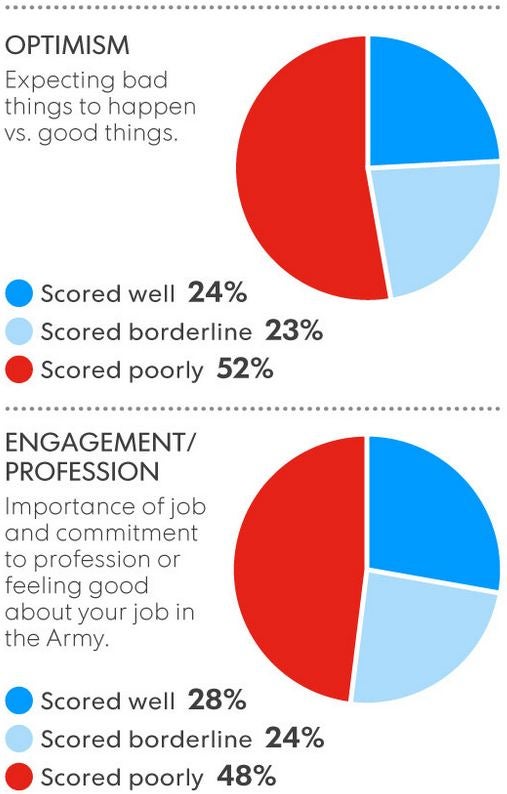US soldiers don't 'feel good' about what they're doing despite $287million 'optimism programme'
Soldiers undergo resiliency assessments annually

Morale is still low amongst the US military despite millions of dollars' worth of investment in positive psychology programs, it has been revealed, with more than 770,000 soldiers feeling pessimistic about their future in the military.
The findings were obtained by USA Today and stem from resiliency assessments soldiers are required to take each year.
In the 'Importance of job and commitment to profession or feeling good about your job in the Army' section, only 28 per cent scored well, while 52 per cent said they expected bad things rather than good things to happen.

The data also reveals that the majority of soldiers do not have trust in the leadership and their peers, are under slept and do not score well for nutrition.
Fighting seemingly endless wars of attrition in the Middle East, the Army has seen rising mental illness and suicide, which led to the introduction of a programme of positive psychology in 2009, which seems to have been largely ineffective.
The assessments also revealed that 48 per cent of soldiers would choose another job if they could start over.
In response to USA Today's investigations, the Army acknowledged the validity of the data but said the methodology for determining morale was out of date, lowering the threshold for what is considered a positive response.
Join our commenting forum
Join thought-provoking conversations, follow other Independent readers and see their replies
Comments
Bookmark popover
Removed from bookmarks